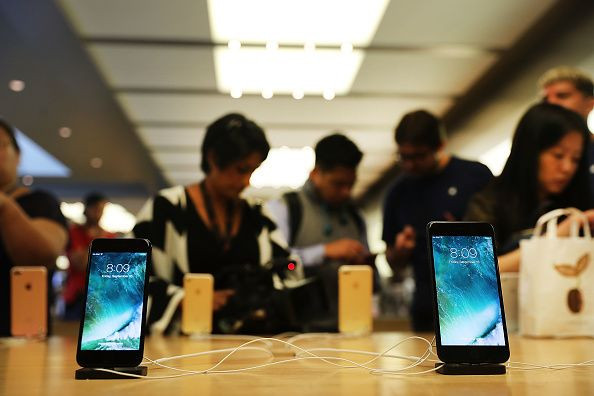iPhone U.S. Production: Apple Reportedly Exploring American Manufacturing After Trump Victory

iPhones might soon be made in the U.S., a result of Donald Trump’s win on Election Day, according to Nikkei Asian Review report.
Hon Hai Precision Industry, also known as Foxconn Technology Group, a main Apple assembler, has allegedly been looking into the possibility of making iPhones in the United States, sources revealed to Nikkei.
"Apple asked both Foxconn and Pegatron, the two iPhone assemblers, in June to look into making iPhones in the U.S.," a source told Nikkei.
Foxconn, which makes more than 200 million iPhones every year overseas, complied with Apple’s instructions, but Pegatron “declined to formulate such a plan due to cost concerns," the source said.
Foxconn Chairman Terry Gou expressed his concern on increase in production costs. As of now, it costs an estimated $225 for Apple to make its latest 32GB iPhone 7, while the devices are sold for $649.
"Making iPhones in the U.S. means the cost will more than double," a source told Nikkei.
The move to manufacture iPhones in the U.S. comes after Trump was elected President. Trump might push Apple to make a certain number of iPhone component devices in America. Throughout his campaign, Trump has strongly criticized companies for making their products overseas instead of domestically. Bringing back jobs to the U.S. was a strong point in his presidential run.
Trump promised to implement a 45 percent tariff on goods made in China, where Apple products are made.
"We're going to get Apple to build their damn computers and things in this country instead of in other countries," he said in January.
"How does it help us when they make it in China?" Trump said in March.
Apart from China, Apple’s key components for making iPhones come from other Asian suppliers, including Taiwan Semiconductor Manufacturing Co., which makes chips for iPhones; Japan Display and Sharp, which supply panels for Apple's handsets; South Korea's SK Hynix and Toshiba in Japan.
Apple CEO Tim Cook previously said the U.S. did not have enough skilled workers for the manufacturing of iPhones.
"To make iPhones, there will need to be a cluster of suppliers in the same place, which the U.S. does not have at the moment," he said in a 60 Minutes interview.
"Even if Trump imposes a 45% tariff, it is still possible that manufacturers will decide to continue production overseas as long as the costs together with the tariffs are lower than the amount they need to spend on building and running production lines in the U.S," he added.
© Copyright IBTimes 2025. All rights reserved.



















